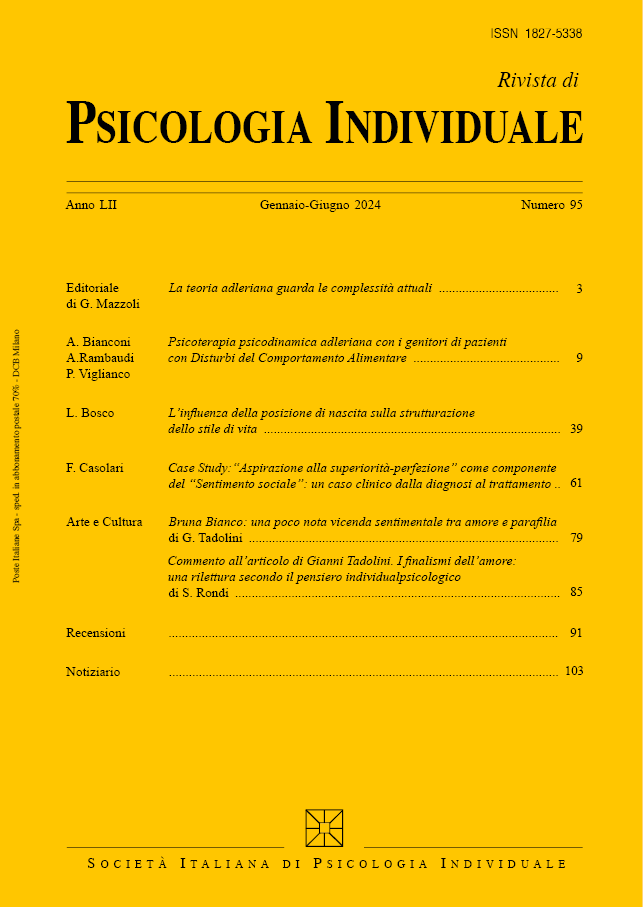ANTIGONE IS LIVING
Art and Culture section
Keywords:
classics, PYSD (Post-Traumatic Stress Disorder), will of power, mitologia, letteratura, disturbo post-traumatico da stress, volontà di potenzaAbstract
This is a study from historical psychology and concern as well as literature not a few adlerian concepts. It allows us both to outline a new interpretation of a classical tragedy and to disclose a new dimension of our theory. Antigone and Creon are the central character in the almost more ancient Sophocles’ drama we know, the Antigone performed 2500 years ago, precisely in 442 b.C. Antigone and Creon - a woman and a man, the daughter of Oedipus and the new tyrant of Thebe - clash about a religious question, the burial of a warrior. Antigone will die in the conflict with Creon, but his deed remain like a model in the western democratic (antytirannical) culture.
Sophocles’ influence extends beyond literature to philosophy and psychology. Hegel’s dialectic and view of tragic conflict f.e. are inseparable from his understanding of Antigone; and for us, adlerian “protesta virile” is frankly enlightened by this tragedy. In Sophocles’ age the woman was considered in a lower social position than man, therefore it’s singular that in theatre she is well represented, and in fact sometimes she is really dominant on man. But every time a similar conflict become radical the tragedy is coming, as more sophoclean plays tell us. Between ancient and modern play could change the social context, some sense, some expressive form, but the culture of power, i.e. the will of power, inclines to develop similar psychodinamic patterns. As a proof of this we consider some lines of the tragedy (translate by H.D.F. Kitto), when Creon exclaim: Now she would be the man, not I, if she / Defeated me and did not pay for it (vv. 484-485), and when he says to Antigone: While I living, no woman shall have rule (v. 525)






